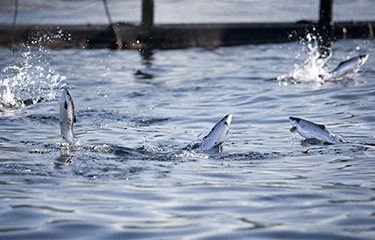Following on from its announcement on 3 October that it would freeze its investments in Norway if the country’s government introduces a new 40 percent resource rent tax on aquaculture, Oslo-based salmon producer Cermaq has terminated its purchase of 689 metric tons (MT) of maximum allowed biomass (MAB).
Cermaq Chief Sustainability Officer Lars Galtung said the proposed resource rent tax on salmon farming had created considerable uncertainty for the entire salmon-farming industry and its support sectors.
“Reduced investments and projects on hold will result in lower activity and a risk of layoffs in the supplier industry. This will affect jobs in many coastal municipalities and will become reality for the aquaculture industry unless there are changes to the resource tax proposal,” he said.
Cermaq bought its share of the offered capacity increase based on Norway’s so-called traffic light permitting system, paying NOK 134 million (USD 12.7 million, EUR 12.8 million). This money was to be transferred to the Norwegian Aquaculture Fund, which is distributed to municipalities with farming sites.
“We will terminate the purchase because we do not have sufficient overview of the impact the proposal will have on future valuation and profitability,” Galtung said.
Cermaq Norway has put investments of up to NOK 4 billion (USD 377.9 million, EUR 381.1 million) on hold due to the tax proposal, which would increase the overall tax rate on salmon farming from 22 to 62 percent.
“Since 2016, Cermaq has invested more than NOK 5 billion [USD 472.3 million, EUR 476.5 million] in Northern Norway and had plans for an additional NOK 4 billion worth of investments in the next few years," Galtung said. “Now we need to get an overview of the consequences of the resource rent tax before any projects can be implemented."
In recent days, producers Lerøy Seafood and Mowi have also canceled planned MAB acquisitions of 614 MT and 914 MT, respectively, in response to the proposed tax hike.
Photo courtesy of Cermaq







